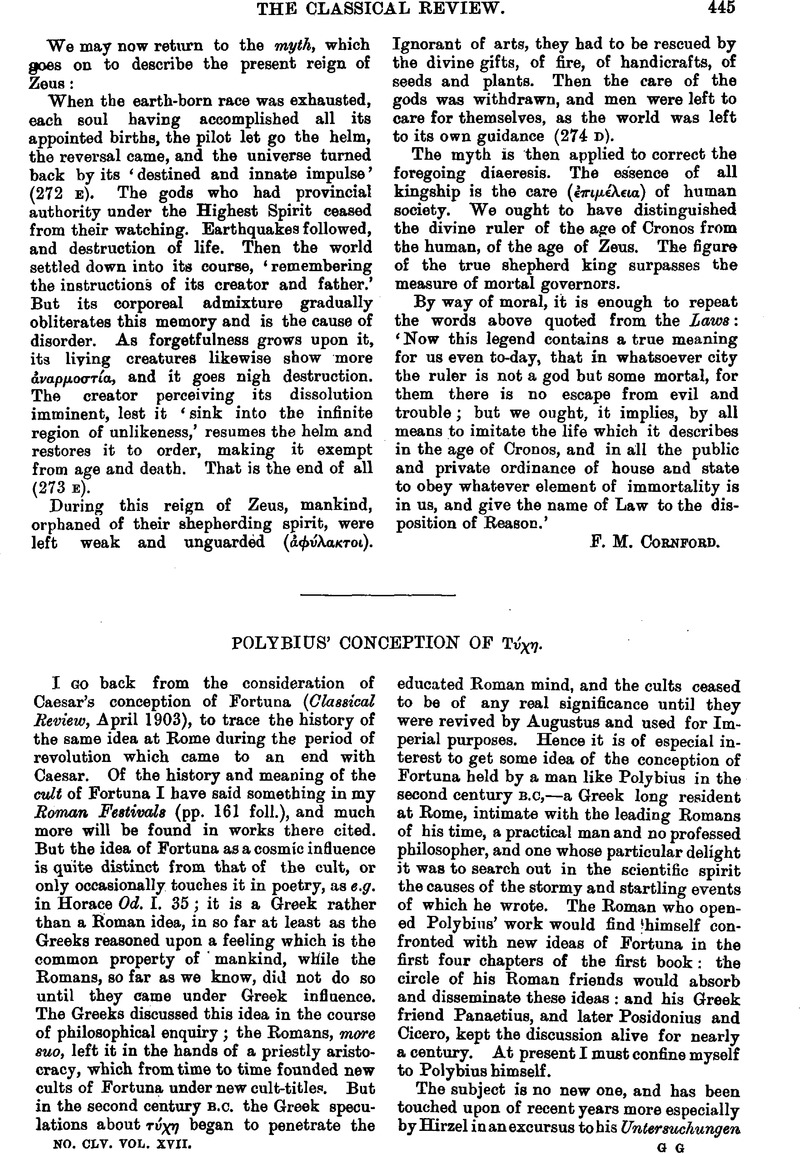Article contents
Polybius' Conception of Tύχη
Published online by Cambridge University Press: 27 October 2009
Abstract

- Type
- Review Article
- Information
- Copyright
- Copyright © The Classical Association 1903
References
page 446 note 1 Roche, La, Charakteristik des Polybius, 1857Google Scholar; Markhauser, , Der Geschichtschreiber Polybius, 1858Google Scholar; Pichler, , Polybius' Leben, &c., 1860Google Scholar. Cf. also Nitzsch, , Polybius, p. 35 follGoogle Scholar.
page 446 note 2 Demetrius' book on τχη is quoted by Polyb. xxv. 21. Scala (p. 159 foil.) seems to me to exaggerate the importance of this single reference.
page 447 note 1 In xxxvii. 9–1 (Hultsch) τχη and εἱμαρμνη occur together in almost the same sense.
page 447 note 2 Scala (p. 183, note) suggests that this passage could not have been written at the same time as I. 4, and that it must have been interpolated later by Polybius himself. It is true that in the two passages τχη is used in two different senses; and that what in I.4 is ascribed to the agencu of τχη is in I. 63 denied to it. But a Greek reader would at once have caught his meaning in each passage, and have failed to see any real contradiction in the two.
- 2
- Cited by


